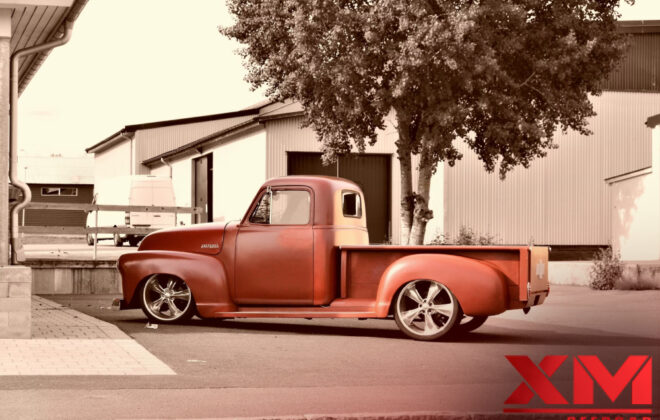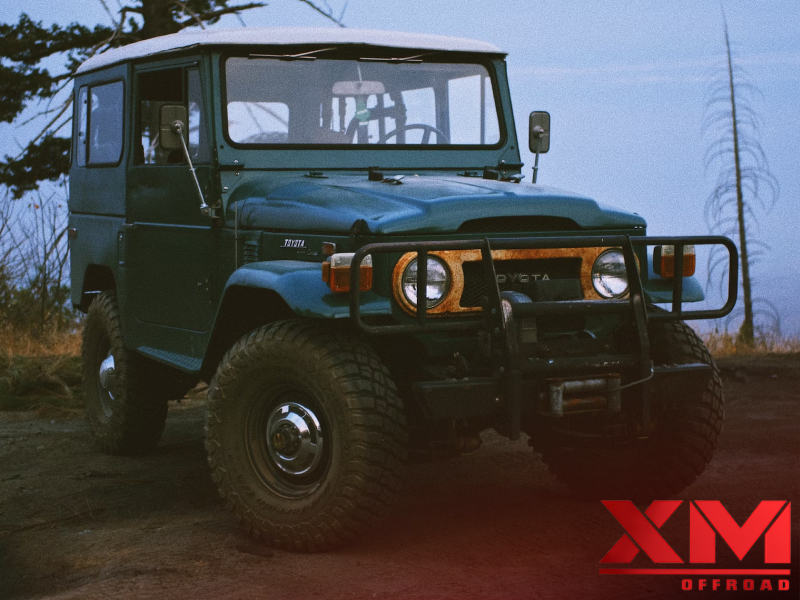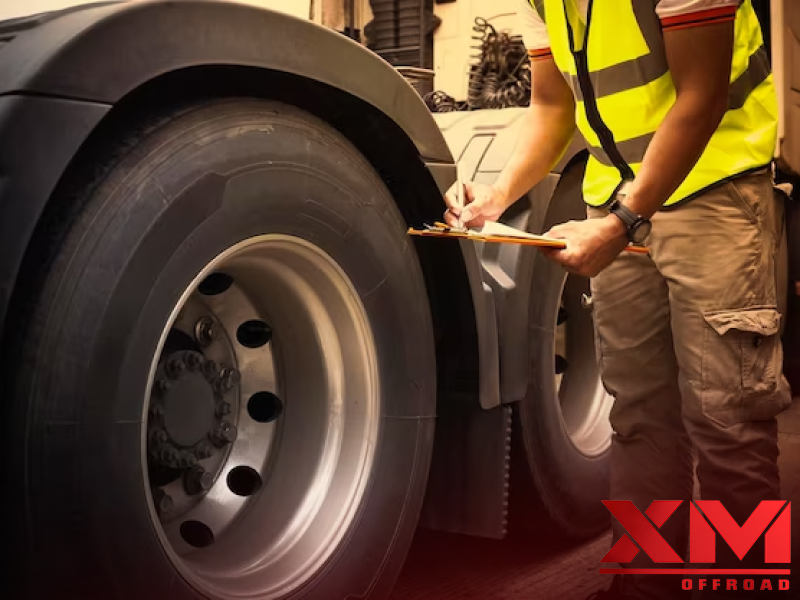Buying the right truck wheels is essential for maximizing your vehicle’s performance, safety, and aesthetics. However, many truck owners often need to correct their mistakes during the buying process, leading to subpar results and wasted resources. This comprehensive guide will explore the three biggest mistakes buyer do when purchasing truck wheels and provide insights into how to avoid them. By understanding these pitfalls, you can make an informed decision when upgrading your truck wheels, ensuring optimal performance and longevity.
What is Truck Wheels?
Truck wheels refer to the circular components attached to the axle of a truck or a large commercial vehicle. These wheels are essential to the vehicle’s overall structure and play a crucial role in its operation and performance. Truck wheels are designed to support the weight of the vehicle and its cargo while providing a smooth and stable ride.
Three Biggest Mistakes for Purchasing Truck Wheels
-
Ignoring Compatibility and Size
One of the most common mistakes people make when buying truck wheels is paying attention to compatibility and size considerations. Truck wheels come in various sizes, bolt patterns, and off-sets, and selecting the wrong fit can harm your vehicle’s performance and safety.
Incorrect Wheel Size
Installing too large or too small wheels can adversely impact the truck’s handling and stability. Oversized wheels may cause rubbing against the fenders or suspension components, leading to premature wear and tear. Conversely, undersized wheels may result in inadequate ground clearance and reduced load-carrying capacity.
Incorrect Bolt Pattern
The bolt pattern is a critical aspect to match when selecting truck wheels. Failing to ensure the correct bolt pattern alignment can lead to improper mounting and uneven distribution of forces on the wheel studs. It can cause wheel wobbling, increased stress on the lug nuts, and potentially dangerous driving conditions.
Incorrect Off-Set
The off-set refers to the distance between the wheel’s mounting surface and the centerline. A wrong offset can affect the truck’s overall balance and steering responsiveness. Positive off-set pushes the wheels closer to the vehicle, while negative off-set pushes them away. Choosing the appropriate offset can lead to rubbing against suspension components or the vehicle’s body.
-
Sacrificing Quality for Price
Truck wheels are available at a wide range of prices, from budget-friendly options to high-end, premium wheels. Many people mistake prioritizing cost over quality, leading to potential safety hazards and decreased durability.
Choosing Cheap, Low-Quality Wheels
Opting for inexpensive or low-quality truck wheels is a cost-effective choice, but it can be expensive in the long run. Inferior materials and construction can result in decreased load-bearing capacity, increased susceptibility to damage, and reduced resistance to corrosion.
Overlooking Wheel Material
The material used to manufacture truck wheels significantly affects their performance and longevity. Steel wheels are generally more affordable but are heavier and less aesthetically appealing than aluminum alloy wheels. Aluminum wheels offer better heat dissipation, reduced weight, and improved fuel efficiency.
Neglecting Load Rating and Weight Capacity
Trucks are made to carry heavy loads, and the wheels must withstand these weight demands. Overlooking the load rating of the wheels can lead to premature wear and even catastrophic failures under heavy loads.
-
Disregarding Tire Compatibility
Another common mistake truck owners make is disregarding tire compatibility when selecting wheels. The type and size of tires should complement the chosen wheels to optimize performance and maintain safety.
Mismatched Tire Size
Installing tires incompatible with the selected wheels can lead to uneven tire wear, compromised handling, and decreased fuel efficiency. Additionally, mismatched tire size can adversely affect the accuracy of the truck’s speedometer and odometer readings.
Overlooking Tire Load Range
Truck tires come in various load ranges, each designed to handle specific weight capacities. Ignoring the load range rating can result in tires that cannot carry the truck’s weight safely, leading to potential blowouts or tire failures.
How to Prevent Them
Understanding Your Truck’s Specifications
The first and most fundamental step is to understand your truck’s specifications. Every vehicle has unique requirements for wheels and tires, such as the correct diameter, width, load capacity, and bolt pattern. This information is often available in the owner’s manual or can be obtained from the manufacturer’s website. Ignoring these specifications can lead to various problems, including decreased handling, reduced fuel efficiency, and potential damage to your truck’s suspension.
Determining Your Usage and Needs
Before purchasing new wheels and tires, carefully assess your truck’s primary usage and specific needs. Different tires are designed for various purposes, such as off-roading, highway driving, or all-season performance. Consider factors like driving conditions, weather patterns, and your truck’s weight. Tailoring your selection to your usage and needs will optimize your truck’s performance and enhance safety.
Choosing the Right Tire Type
Truck tires come in various types, including all-terrain, mud-terrain, highway, and performance tires. Each type has unique characteristics, such as 24 inch wheels or 26-inch wheels, affecting traction, handling, and durability. For instance, all-terrain tires offer a good balance between on-road and off-road performance, making them a popular choice for many truck owners. Conversely, mud-terrain tires excel in challenging off-road conditions but may not provide the smoothest ride on paved surfaces. Carefully weigh each tire type to choose the one best suits your requirements.
Paying Attention to Load Capacity
Trucks often carry heavy loads, so selecting tires with an adequate load capacity is crucial. The load-carrying capacity of a tire is indicated by its load index, which can be found on the tire’s sidewall. Ensure that the load capacity of your chosen tires meets or exceeds the weight your truck will likely carry regularly. Overloading tires can lead to premature wear, reduced handling, and potential tire failure, jeopardizing your safety on the road.
Prioritizing Quality and Durability
Investing in high-quality truck wheels and tires is essential for long-term performance and safety. While cheaper options may seem tempting, they often compromise quality and materials, leading to faster wear and tear. Look for reputable brands with the best track record for manufacturing durable and reliable tires. Additionally, consider reading customer reviews and seeking recommendations from truck enthusiasts or professionals to ensure you’re making a wise investment.
Paying Attention to Wheel Size and Fitment
Selecting the right wheel size is not just about aesthetics; it also affects your truck’s performance. Larger wheels may look impressive but can negatively impact ride comfort, handling, and fuel efficiency. On the other hand, smaller wheels may need to provide more brake clearance for larger brake components. Stick to the recommended wheel size and fitment specified by the manufacturer to avoid any negative consequences.
Final Thoughts
Buying truck wheels and tires is a significant investment that directly impacts your vehicle’s performance, safety, and aesthetics. You can avoid common mistakes when purchasing by understanding your truck’s specifications, determining your usage needs, choosing the right tire type, and prioritizing quality and durability. You can seek guidance from experts who can help you make an informed decision. With proper research and careful consideration, you’ll find the perfect wheels and tires to suit your truck and driving requirements.
Read Also: 4 Important Arguments Against Using Wheel Spacers in Your Vehicle
FAQs
Q1) What Matters Most While Purchasing Wheels?
If you’re buying simply wheels and not a wheel and tire combination, this measurement in inches should be the same for the wheels and tires on your car. Each vehicle model has a unique bolt pattern for its wheels so the studs line up with the axle.
Q2) What Characterizes a High-Quality Wheel?
An accurate fit is the difference between a good, excellent, and perfect fit. The fundamentals of properly installing aftermarket wheels include specifications for the width, diameter, offset, center bore, brake clearance, load factor, and lug hardware.
Q3) What is the Primary Factor behind Wheel Failure?
The most common reason for wheel system failures is poor wheel installation, which leaves the wheel free or leads it to become loose. A loose wheel frequently results in broken wheel studs and a separation of the wheel and tire from the car.



